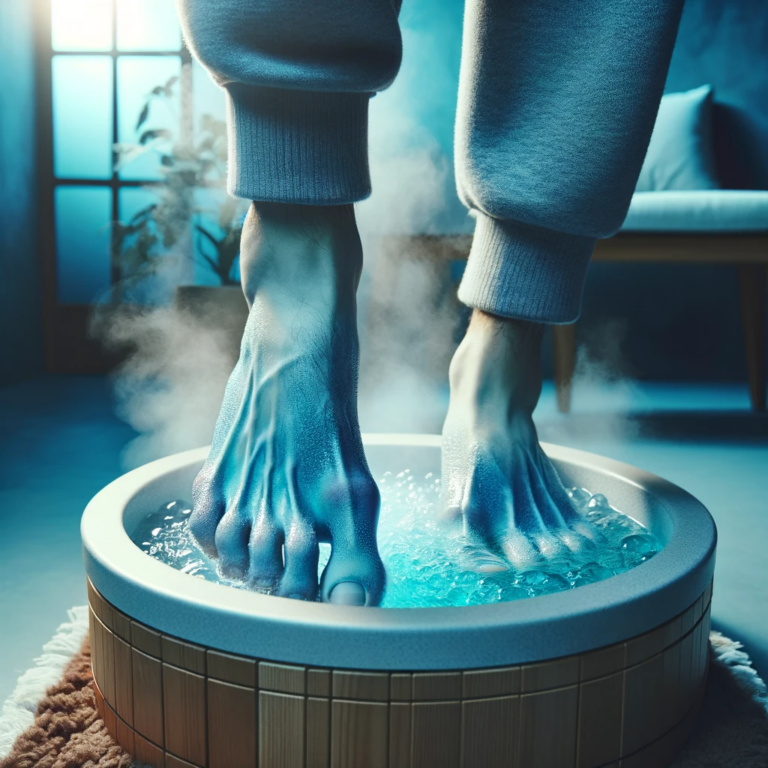ELI5 Summary:
Smoking and hiccups share a fascinating link. Hiccups are involuntary contractions of the diaphragm, often triggered by changes in the body or surroundings. When you smoke, the activity and inhalation of tobacco smoke can irritate the diaphragm and nerves leading to these sporadic contractions – hence, the hiccups. Factors such as nicotine stimulation and the irritants in the smoke play a significant role in this process. While occasional hiccups are usually harmless, frequent hiccups might indicate an underlying issue and should be addressed with a healthcare professional.
Introduction: Understanding Hiccups and Smoking
As I light up my pipe and lean back into the crook of my armchair, I feel the familiar sensation. A hiccup! I chuckle to myself – ah, the peculiar ties between the beloved smoke and those unexpected hiccups! But have you ever wondered why these two, seemingly random phenomena, are so often linked? Why does smoking tobacco on occasion cause hiccups?
What are Hiccups? A Brief Overview
Let’s first unravel the mystery of hiccups. Hiccups are sudden, involuntary contractions of the diaphragm – the muscle that separates your chest from your abdomen and plays a key role in breathing. Think of it as your body’s balky donkey, refusing to move forward smoothly! These contractions often occur after eating, drinking, or sometimes, out of the blue causing a close of your vocal cords which results in a characteristic ‘hic’ sound.
The Connection Between Smoking and Hiccups
Now, onto the main question, why does smoking sometimes result in pesky hiccups? When you smoke, it’s not just tobacco that sneaks its way into your body. Smoke also enters, and the activity of smoking can stimulate the nerves that trigger the hiccup reflex. Shocker, right? But hold onto your hats – this is just the superficial understanding. So, kick back, keep that pipe handy, and buckle up, as we delve deeper into the science of smoker’s hiccups!
Diving Deep into the Causes of Hiccups
Unraveling the hiccup mystery requires us to take a journey deep inside the human body. So, let’s play pretend! Imagine yourself, microscopic-sized like in the movies, ready to explore and understand this complex mechanism. Exciting right? This is your backstage pass at the live concert that is your body!
Physical Trigger points: Understanding the “How”
Ever wondered exactly what triggers those annoying hiccups? It’s like someone flipping a switch within your body – a trigger. For some, this could be eating too quickly, drinking alcohol, or feeling nervous or excited. For smokers though, that trigger is tobacco! When smoking, changes in pressure within the diaphragm, stomach, or eardrums can sometimes result in hiccups. So next time you’re puffing away and hiccup strikes, blame those pressure changes!
The Role of the Nervous System and Chemical Reactions
Our bodies, truly are marvelous, aren’t they? They contain a paramount network of nerves that plays an integral part in our hiccup debacle amongst other things. Two primary culprits in this hiccup crime scene are the phrenic nerves and the diaphragm. Bother these you ask? How dare you, smoke! The activity of smoking, especially deep inhales and the holding of breath often accompanying it, can disrupt the normal working of these body parts, leading to a series of chemical reactions, and voila, you have a hiccup! All this from a simple puff! Incredible, right? Stay tuned to catch more of this fascinating unraveling in the upcoming sections.
Why does smoking tobacco on occasion cause hiccups?
Hmm! The million-dollar question. We’ve been through the basics, now let’s dig deeper into why these hiccups tend to plague smokers sporadically.
The Role of Smoke Inhalation in Causing Hiccups
Remember when you had your first puff of smoke and coughed your lungs out? Fast forward a few years, and you can puff like a sailor, yet, the hiccups persist sometimes. Why is that? Well, inhaling smoke, particularly during a deep puff, can irritate the diaphragm and nerves sending your system into a frenzied hiccup fit! And guess what? These spasms don’t exactly read the calendar before showing up! Smoke today, hiccup tomorrow!
The Impact of Nicotine on the Body Nicotine!
Not just a cool word, eh? This little devil is one of the over 7,000 chemicals that you invite into your body with every puff of smoke! Now, nicotine can have various effects on your body, one of which is its stimulatory effect on the central nervous system. This excitation sometimes can extend to the nerves controlling your diaphragm, causing it to contract uncontrollably, leading to hiccups. Ouch! So, the next hiccup you have, give a heads up to nicotine! Isn’t this journey fascinating? Who knew your cigarette harboured such secrets? With hiccups, smoking sure keeps its users on their toes! Let’s keep dissecting these curiosities together in the next section.
The Science Behind Smoking-Related Hiccups – A Closer Look
Ah, science! There’s something deliciously satisfying about pulling apart the layers of a mystery and getting to the truth of it all. Let’s scrutinize this hiccup-smoking conundrum related to our bodily mechanisms and find out exactly how it all fits together!
The Role of the Phrenic Nerves
When it comes to hiccups, our phrenic nerves are kind of a big deal. These two nerves extend from the neck down to the diaphragm, carrying signals back and forth. What happens when you inhale smoke? Nicotine and other chemicals in tobacco can irritate these nerves. This irritation can result in a synchronous hiccup! Is your mind blown yet? Thought so!
Smoking and the Diaphragm: How Are They Connected?
You can’t converse about hiccups without mentioning the diaphragm – the star of the hiccup show. As I mentioned, hiccups are the sudden, involuntary contractions of the diaphragm. When you smoke, the activity of taking deep breaths in and holding the smoke can cause sudden changes in your diaphragm’s behavior leading to hiccups. It’s impressive how everything is interconnected and works together, isn’t it? The sheer awe of understanding the complexity of your body! And to think, all this because of a cause-effect relationship of smoking and hiccups! Let’s continue unraveling this amazing mystery in the next section!
Debunking Common Myths on Smoking and Hiccups
It’s time to wear our Sherlock hats. Out there in the echo chambers of the internet, there are plenty of misconceptions about smoking and hiccups. Let’s cheerfully bust some myths and make sure we’ve got our hiccup facts straight!
Does Chain Smoking Cause More Hiccups?
Some indeed argue that puffing one cigarette after the other like a chimney can send you into a hiccup marathon. But is this true? Not necessarily. The relationship between hiccups and smoking doesn’t strictly adhere to the “more is worse” principle. A chain smoker isn’t necessarily more prone to hiccups than an occasional smoker. So, whether you smoke like a freight train or enjoy the occasional puff, that rascally hiccup can still sneak up on you!
Is It Overcome by Special Breathing Techniques?
Ah, the age-old quest for the perfect solution! Some claims say that special breathing techniques can mitigate smoker’s hiccups. In reality, while some individuals may experience temporary relief through certain breathing exercises, they are not a foolproof solution to suppress hiccups completely – especially when it’s our old friend Nicotine stirring up the trouble! In this game of hiccups and myths, truth truly is stranger than fiction, isn’t it? Keep reading and let’s keep dispelling these myths together!
Potential Health Concerns with Smoker’s Hiccups
By now, we’ve unraveled quite a bit of the hiccup mystery, but there’s a more serious part of the story that needs to be told. Smoker’s hiccups aren’t just inconvenient, they might signal something more concerning. Let’s get down to it!
Chronic Hiccups and Risks to Health
Ah, the hitch in the hiccup giddy-up. While occasional hiccups are no cause for alarm, chronic hiccups can indicate an underlying health issue. For smokers, persistent hiccups could be a sign of damage to the nerves that control the diaphragm. It could even be an indication of more serious conditions like lung cancer. Scary, isn’t it?
Do Hiccups Indicate a Serious Smoking Problem?
So, does that mean every episode of hiccups indicates a dire situation? Not at all! Occasional hiccups are just that – occasional. But if you notice the frequency of your hiccups increasing along with discomfort, it might be time to speak with your doctor. Always better to be safe than sorry, right? The truth is, smoking does carry with it a bag of potential health concerns. So, it’s important to pay attention to any unusual changes you notice. Health is wealth, after all!




